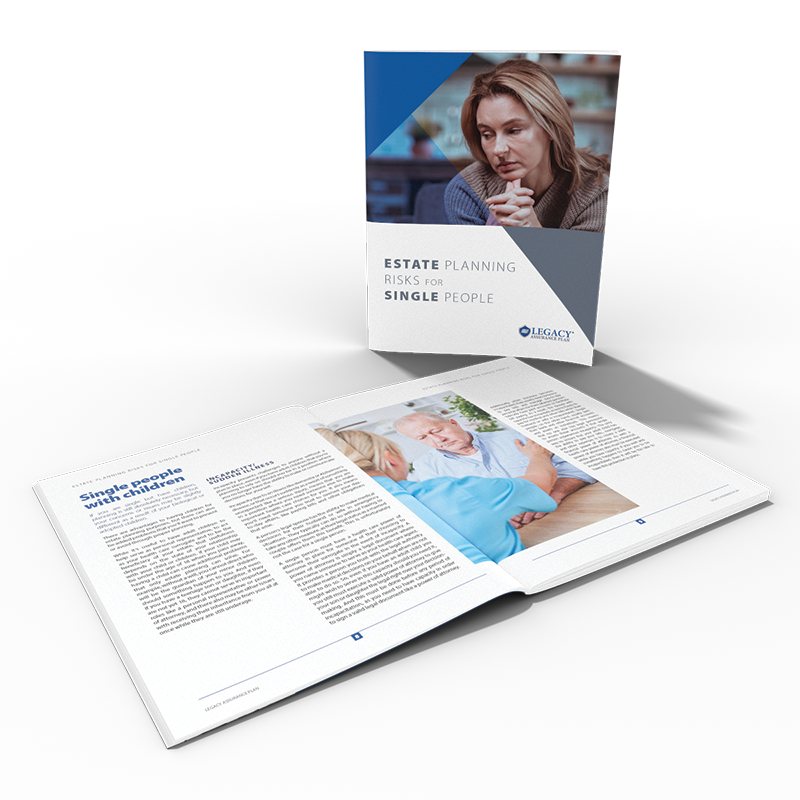More and more Americans are choosing not to get married, and many are deciding against having children. That's why today more people than ever before may believe they do not need an estate plan because they don't have a family to protect. As a result, the default plan in their state's laws controls how their assets are distributed and who will serve as their guardian should they become incapacitated during their lifetime.
While married couples have a built-in person to serve as their beneficiary, health care surrogate and financial power of attorney, it can be more complicated for unmarried people to fill these roles. When a single person does not plan for their future, it often results in having their hard-earned assets pass to a distant relative and having a complete stranger make life or death medical decisions on their behalf.
Single people without children
A person's spouse has the ability to make medical decisions for their husband or wife in emergency situations. They typically can do so without needing a power of attorney, as their legal status as a married couple offers them this benefit. This is unfortunately not the case for an unmarried person. A single person must have a health care power of attorney in place for someone of their choosing to become their surrogate decision maker in the event of incapacity.
For single people with children, their adult children often take on the responsibilities that a spouse might, including providing assistance with transportation, organization and other daily tasks. And they often do so without the considerable expense of the legal proceedings that come with being adjudicated as unable to care for yourself, and placement in an assisted living or skilled nursing facility. However, if you're unmarried and without children, it's unlikely that you'll be able to rely on someone to take on this kind of care for you.
Another issue facing most single people without children is that it's difficult to find close friends or family members to serve as your health care agents or personal representative. It's a mistake to assume that without a plan in place, the court will find and appoint someone for you who will make the decisions you would likely have made for yourself. This is because the legal defaults are often paid professionals who are expensive and unlikely to know what your preferences would be.
Single people with children
There are advantages to having children for estate planning purposes, but there can also be added problems that you'll want to prevent or avoid through proper planning. While it's useful to have adult children to serve as your personal representative, health care surrogate and be the beneficiary of your estate, that usefulness depends on the state of your relationship with your child or children and their location.
If your child is under the age of 18 when you pass away, it can cause additional problems that only estate planning can solve. For example, without a will, you cannot direct who will be the guardian of your minor children should something happen to you. And even if you have a teenage son or daughter, if they are not yet 18, they cannot serve in important roles like a personal representative or power of attorney. Additionally, you may not want them to receive their full inheritance at 18, which is the result when you fail to plan.
Summary
Estate planning is often a challenge to unmarried people because they don't have a spouse and may not have adult children or close relatives who can serve in important roles like a health care surrogate during a period of incapacity. They are also more likely to have friends and organizations as their beneficiaries, and that requires estate planning to accomplish.
Planning ahead is also more critical for single people because the statutory estate distribution defaults and online form documents were intended for married people with children, making them a poor fit for unmarried people. The laws favor the preferences of traditional families, so it's important for single people to embark on estate planning to ensure their needs are met and their wishes are followed.



